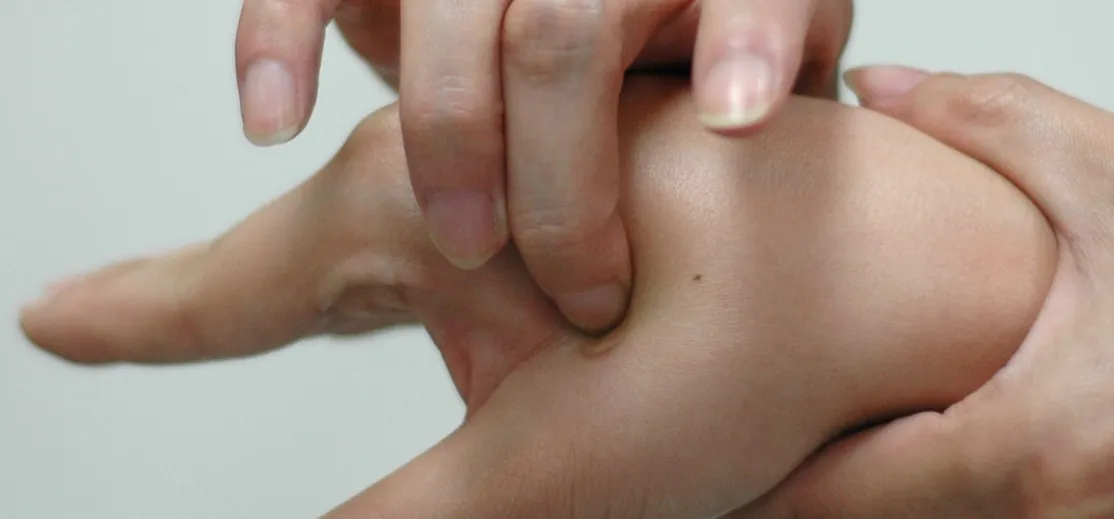It may sound irrational, but I bet a lot of you actually avoid doing any work at work—but not on purpose. You might be simply struggling with motivation, or you might just be overdosing on the caffeine. Whatever the issue, getting focused takes lots of time and effort.
But we can help you out with that. By incorporating a few of these mind hacks into your daily work routine, you'll find yourself getting things done more easily, not to mention better and faster with less stress overall.
1. Wake Up Before Everyone Else
Many of us are not, and never quite will be, morning people. There's nothing easy about cracking your eyes open before the sun rises, with or without coffee's assistance (or even a shower). Yet some CEOs and creative workers believe that the key to your entire day's productivity is waking up before anyone else's alarm clock goes off.
Interestingly, the rationale behind waking up before 6 a.m. has nothing to do with work. Instead, the goal is to wake up early and waste time. According to Paul DeJoe, one of Ecquire's cofounders, we should climb out of bed early to enjoy even more free time and prepare ourselves for the long day ahead.
As DeJoe states, once work begins, we're driven to stay in a work-only mindset that doesn't allow for distraction. Without this relaxing, enjoyable time before diving into emails, we tend to start off mornings only focused on work, and let's face it, work doesn't always put us in a great mood.
So, wake up early tomorrow—really early—and do absolutely nothing work related. You'll get some quality "you" time in, and feel like you've started your day off on a pleasant note, setting the tone for the workday ahead.
2. Tackle Tasks You Despise First
Have trouble getting things going when you sit down at your desk each morning? According to Alok Bhardwaj, founder of software startup Hidden Reflex, the worst tasks are the best place to start.
Bhardwaj suggests that beginning each workday with the least desirable item on your to-do list increases your productivity for the rest of the day.
Don't jump into your emails or spend time wandering around the water cooler—instead, get started on the tasks you're dreading. Knock out a solid two to three hours of unpleasant work, and you'll feel accomplished when finished. Your mood will also get a boost, as this method gets the most annoying part of your day over with first.
3. Procrastinate More Often
Be honest: some days, you spend more time staring at a blank screen than you do actually working. At times, just the thought of a big, impending task is enough to make you put it off. That instinct to procrastinate can make you a more productive employee.
Although you've probably heard that procrastination is just laziness, it does have workplace benefits. Typically, we spend our days trying to get our biggest, most pressing task completed, devoting the majority of our time and effort to that one piece of work. Yet staring down such an important project when you start your day actually harms your ability to complete it.
Walter Chen, cofounder of productivity app iDoneThis, says it's best to give in to procrastination and skip that huge, looming task. Instead, get to work on less important things.
Chen claims that avoiding your most important task for the day actually makes it feel more manageable. By prioritizing another task as "more important" for the moment, you start to lose that sense of dread you originally felt about the project. Once you've run out of other tasks to procrastinate with, you'll feel ready to take on anything.
4. Keep Meetings to a Minimum
Have you ever gotten invested in a project at your desk, only to be pulled away for a surprise meeting? There's probably nothing more annoying than having to set aside the task at hand to attend a meeting.
Meetings are time-suckers, designed to gather people together and pull them out of their work for anywhere from 30 minutes to two hours. This is exactly why Asana, a mobile app designed to encourage teamwork from anywhere, has a "No Meeting Wednesday" policy in place.
Asana employees are given the entire work day each Wednesday to lose themselves in their own work, without the interruption of meetings. As stated on their blog, the company argues that keeping staff out of meetings makes them more productive:
"The high level goal of NMW is to ensure that everyone gets a large block of time each week to do focused, heads-down work. ... Makers suffer greatly from interrupts in their flow time. Managers are generally used to having a schedule-driven day, so it's easy for them to throw a disruption into somebody else's calendar."
While you might not be able to break away from meetings at your place of employment, you can try to limit how many you attend. Instead of sitting through back-to-back-to-back meetings multiple days each week, try to condense meetings into just one or two days.
Remember, the goal is to sit down and work without interruption—and sometimes, just closing your office door can do the same as a No Meeting Wednesday.
5. Break Up Your Day with Breaks
No, I don't mean you should start taking a break every few minutes. You should, in fact, take a break every 25 minutes, though.
Break up your day into precisely-timed chunks, and you'll find yourself more focused and energized for the whole eight-hour day. The Pomodoro Technique, created by Francesco Cirllio, works with your brain's attention span rather than against it.
You simply focus your attention and energy on one task for 25 minutes. At the end of that time, give yourself a five-minute break. This quick break allows you to take your mind off the task at hand, and enjoy distractions.
The Pomodoro Technique is great for those of us who tend to let our minds wander while working on a lengthy project. By knocking out a solid 25 minutes of work, then rewarding ourselves with a break, we increase our productivity by returning to the task with a re-energized brain.
6. Give Yourself Two Minutes
Have two minutes? You might be surprised at what you can get done. David Allen, who is famous for his "Two-Minute Rule", suggests that tasks should be categorized in two ways: can it be done in two minutes, or does it require more time?
If something can be completed in 120 seconds, do it immediately. The more time you spend preparing and planning for these brief, easy tasks, the longer and more complicated they become.
Focus on knocking out the easy, little things as they appear, rather than letting them slowly pile up and become bigger tasks. With the two-minute rule, you can accomplish countless tasks in a very short amount of time.
So, save yourself time and jump on things that won't suck up your time. Need to go make 50 copies of a document? Do it immediately. Want to check and see what room you reserved for next week's meeting? Get it done ASAP. Waiting will only reduce your productivity.
7. Say No
Chances are, if you're well-liked at work, you're also less productive. It's difficult to say "no" to friendly requests from coworkers, especially if you're someone who loves to help out.
So, if you need to kickstart your productivity, it's important that you say "no" often. Each time you agree to help a fellow employee, you're increasing your own workload and inhibiting your ability to tackle tasks that were directly assigned to you.
Turning down others' requests won't be easy. But, thanks to a study (full study here) from Vanessa Patrick, marketing professor at the University of Houston, it's easier to say no if you change your word choice.
When participants told themselves "I can't eat unhealthy food", they ended up eating a piece of chocolate. Those who told themselves "I don't eat unhealthy food", on the other hand, were able to resist, giving in to the chocolate only 36 percent of time.
Putting the phrase "I don't" into your workplace vocabulary can have the same effect. Rather than telling a coworker that you can't help them out, tell them you don't have the time. Or, if you're feeling particularly mean spirited, go ahead and tell them you just don't help anyone anymore.
8. Spend Less Time Sitting at Your Desk
We all know sitting down for the majority of the day is harmful to our health—but hanging out in your desk chair all day is also negatively impacting how much work you manage to complete.
Want to get more done? Entrepreneur Gokil Nath Sridhar suggests taking your work away from your desk. Rather than staring at the same desktop screen, check emails elsewhere. We all get our work emails sent to our smartphones anyway, so why not take advantage of this feature by getting up and moving around?
Wander to a nearby coffee shop, or take a walk, checking in with work and replying to emails at the same time. You'll return to your desk refreshed and ready to focus again.
9. Waste Some Time Online
Admit it: you sneak onto Facebook and Tumblr at work, checking out updates and giving yourself a little break—even though you're technically not supposed to visit these sites from a company computer. As it turns out, those short bursts of distraction are a great way to increase your productivity.
As Dr. Vivien K. G. Lim and her fellow researchers from the National University of Singapore found, surfing the web while at work refreshes workers, making them productive. In fact, checking out social media sites or doing a bit of online shopping increased productivity more than other personal "distractions" like phone calls or email check-ins.
Participants in Dr. Lim's study reported that after just a few minutes of internet browsing, they felt more alert, focused, and engaged with their work, but mostly after visiting favorite websites. Because we associate certain sites with pleasure, scanning them for even a brief amount of time makes us happy. Allow yourself to browse your favorite sites for 10 minutes or so and you'll reap the benefits.
10. Make Mondays Easier by Working on Sundays
Can't stand crawling out of bed on Mondays? You're not alone. Part of the reason we dread Monday morning each week is because we know we'll sit down to a full email inbox and list of things that didn't quite get finished on Friday. As a result, we spend a good chunk of our time starting the week by slogging through leftover work.
Instead of wasting precious time, try Forbes writer Ilya Pozin's approach: schedule a little desk time on Sundays. You don't have to go into the office, or spend hours replying to your boss's emails—even a quick check-in with work will help you accomplish more come Monday morning.
Pozin suggests taking on small tasks that don't take up too much of your Sunday night. He recommends reading emails and replying to any urgent messages and checking your calendar for the week to come. If you're willing to devote a little more time to reducing Monday's workload, you can also prep for meetings or complete small tasks that can be done out of the office.
Now... Get Productive
If you need other creative ways to increase your productivity while at work, try listening to the soundtracks from your favorite video games. Or, if you really want to get the juices flowing, head to a nearby bar for a few drinks on your lunch break. However you work, find what motivates you—as long as it also doesn't get you fired!
Cover image via Shutterstock





































Comments
Be the first, drop a comment!